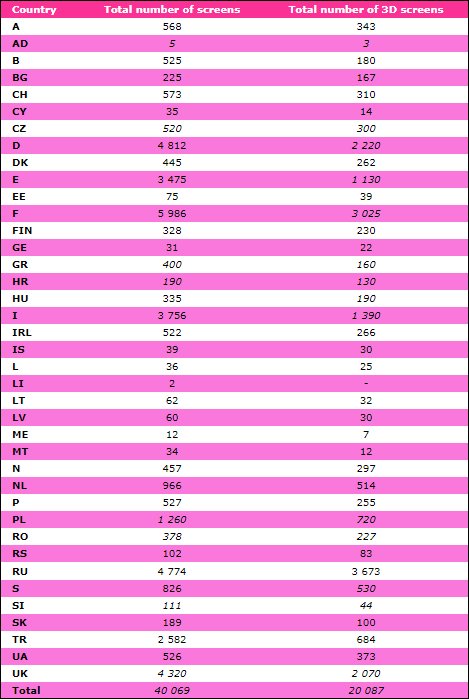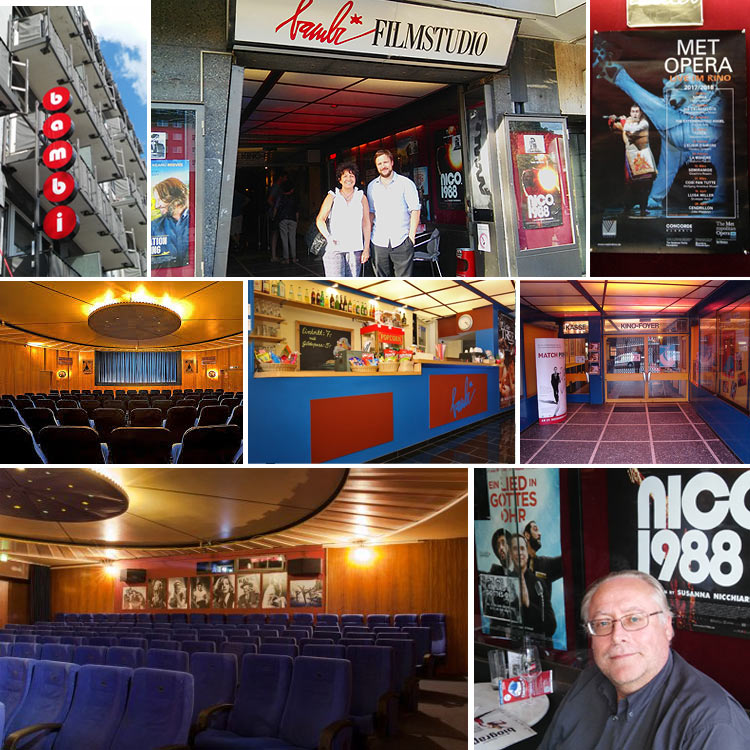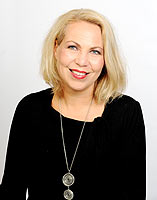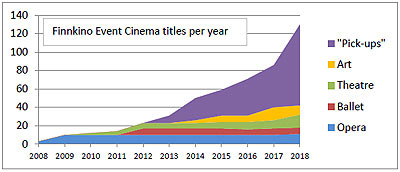
Reg. Trib. Milano n. 418 del 02.07.2007 - Direttore responsabile: Elisabetta Brunella
 |
 |

Number of digital screens and 3D screens by country as at 30th June 2018 (overview)
|
This column hosts portraits of cinemas in Europe and the rest of the world which are quite different from one another but have in common the fact that they have all adopted digital projection.
BAMBI - Düsseldorf |
||||||||||
It's just before 5 p.m. on the 10th August. Even here in Düsseldorf we are experiencing the wave of heat that has marked summer 2018 at all latitudes in Europe. I didn't expect a queue: these are the spectators, mostly with greying hair, who are waiting to see Wim Wenders' documentary on Pope Francis. It's being screened by the Bambi, a cinema that is a particular favourite of senior audiences, since there are no steps to climb and access is easy, but also thanks to the voice-over system, which solves the difficulty of reading subtitles. And so, on a sun-soaked afternoon, the Bambi's auditorium fills up - the large one seating 135 and distinguished by its wooden ceiling and boiserie-decorated walls, dating back to the 'Sixties, like the sumptuous central chandelier, accompanied by pendant appliques along the walls. Made of metal, and to design, these are something quite different to the mass-produced furnishings of modern cinemas but with today's regulations on the use of materials, they would be banned. A "modern antique" look but avant-garde technology: the Bambi and its smaller auditorium - seating 75, recently renovated and known as Bambino - are both equipped with digital projectors. Stephan, the cinema's manager, who started work as a projectionist in the 35mm era, praises the quality and efficiency of digital technology but misses the physical contact with film, or the fact that working day by day in the projection booth a sort of familiarity was gained by handling the reels of film and discovering it almost unaware. Nowadays he presses a button and the film starts: if he wants to watch it, he has to go and sit in the theatre like any other spectator. Kalle arrives at the appointment by bike. He is one of the owners of the company that possesses a total of six venues known for quality cinema in Düsseldorf. If the Bambi is located in what everyone calls the "Japanese Quarter" (Düsseldorf is the city outside the empire of the Rising Sun with the highest number of Japanese residents), the Cinema is situated in the heart of the Altstadt (the Old City) surrounded by hosts of restaurants with outside tables, creating a vigorous, if unexpected, movida along the banks of the Rhine. Then comes the Atelier, located in the centre of the City, near to the main station. It is characterized by a programme including 3D films and added content of a cultural nature, such as operas from the Metropolitan (a proposal which - at the start of the season - sees queues of senior citizens on their feet early in the morning to secure a subscription). The Metropol, which is located in the south of the City, being near to the university, is visited by many students. The Souterrain, instead, addresses the residents of Oberkassel, the elegant residential district on the far side of the Rhine, offering seating for 70 and marked by comfort and particular care to art documentaries. For 2019, titles have already been announced to include Picasso, Basquiat, Frida Kahlo, Niki de Saint-Phalle and, of course, Beuys, who first studied and then taught at the Düsseldorf Academy. Last but not least, comes a summer arena, with programming designed to make the most significant titles of the past season available to spectators. As well as the extreme attention to quality, the six venues also share an inclination towards original-language versions, fairly uncommon in Germany, which is a country, like Italy or Spain, that favours dubbing. "This is one of the most important novelties digital technology has brought us," states Kalle. "Ticket sales for original versions have increased ten times over, compared to the age of 35mm." The other important novelty is represented by added content which, in a sense, has provided the new technology's access to the Filmkunstkinos' theatres (Filmkunstkinos is the name of the company the six cinemas refer to). "Our technological 'revolution' began with support for the Delicatessen project, launched by the distributor Salzgeber, to increase the circulation of documentaries by equipping theatres with electronic projectors. Since this first step, we have passed on to projectors with DLP Cinema technology, by becoming part of a VPF scheme and thanks to a mix of financial support allocated by the MEDIA Programme, the FFA, BKM and Film und Medienstiftung NRW." An interest in what's new, but most of all an eye to quality programming. And while the billboards on his cinemas announce films from the 2017 Venice Film Festival, from Nico 1988 to Foxtrot, Kalle is packing his suitcase for his coming trip to the Lagoon city. (Per leggere il testo in italiano cliccare qui)
|
|
Marjut Apilo-Olson
Finnkino is a cinema chain with 16 multiplex cinemas around Finland. We started showing added content (also known as Event Cinema) over 10 years ago. The first live event on our screens was a Formula 1 race! However, MET Opera has has been the real booster of live event cinema development. Ten years ago, bold investments were made in satellite technology. A few years later also seasons from the Bolshoi Ballet and National Theatre were available. From 2013 onwards, there has been an increasing and very gratifying cultural offer: concerts, theatre, sports and art documentaries, and more. In other words, not all event cinema screenings are live, but all live events are Event Cinema! For the past three years, we have used only digital technology on our live events. Our partner (Gofilex) downlinks the satellite signal, or in some cases, they take the signal dir My mission is to offer great culture events to our customers on screen. The world's greatest events should be easily accessible for everybody, with reasonable prices. Event cinema programming does not depend on expensive satellite equipment any more. Many great events are available also on DCP, sometimes only a few weeks after the live show. Live events have a special atmosphere, of course. Musicals played in London can now be enjoyed at the cinema close to the arctic circle without satellite signal disturbances caused by snowstorms. In the future digital transmitting technology will allow all cinemas to offer great live events from far and wide. |
MEDIA Salles Piazza Luigi di Savoia, 24 - 20124 Milano - Italy Tel.: +39.02.6739781 - Fax: +39.02.67397860 E-mail: infocinema@mediasalles.it |
 |



 We are 100 % digital! No, I don't mean screening films, that's past history now! What
We are 100 % digital! No, I don't mean screening films, that's past history now! What ectly from the production camera. This signal is transmitted through broadband to our screens. This is easy, cost-effective and saves resources at cinemas! It also gives us the opportunity to offer new type of added content, such as red carpet screenings, seminars, stand-up, BtoB-events... the sky is the limit!
ectly from the production camera. This signal is transmitted through broadband to our screens. This is easy, cost-effective and saves resources at cinemas! It also gives us the opportunity to offer new type of added content, such as red carpet screenings, seminars, stand-up, BtoB-events... the sky is the limit!